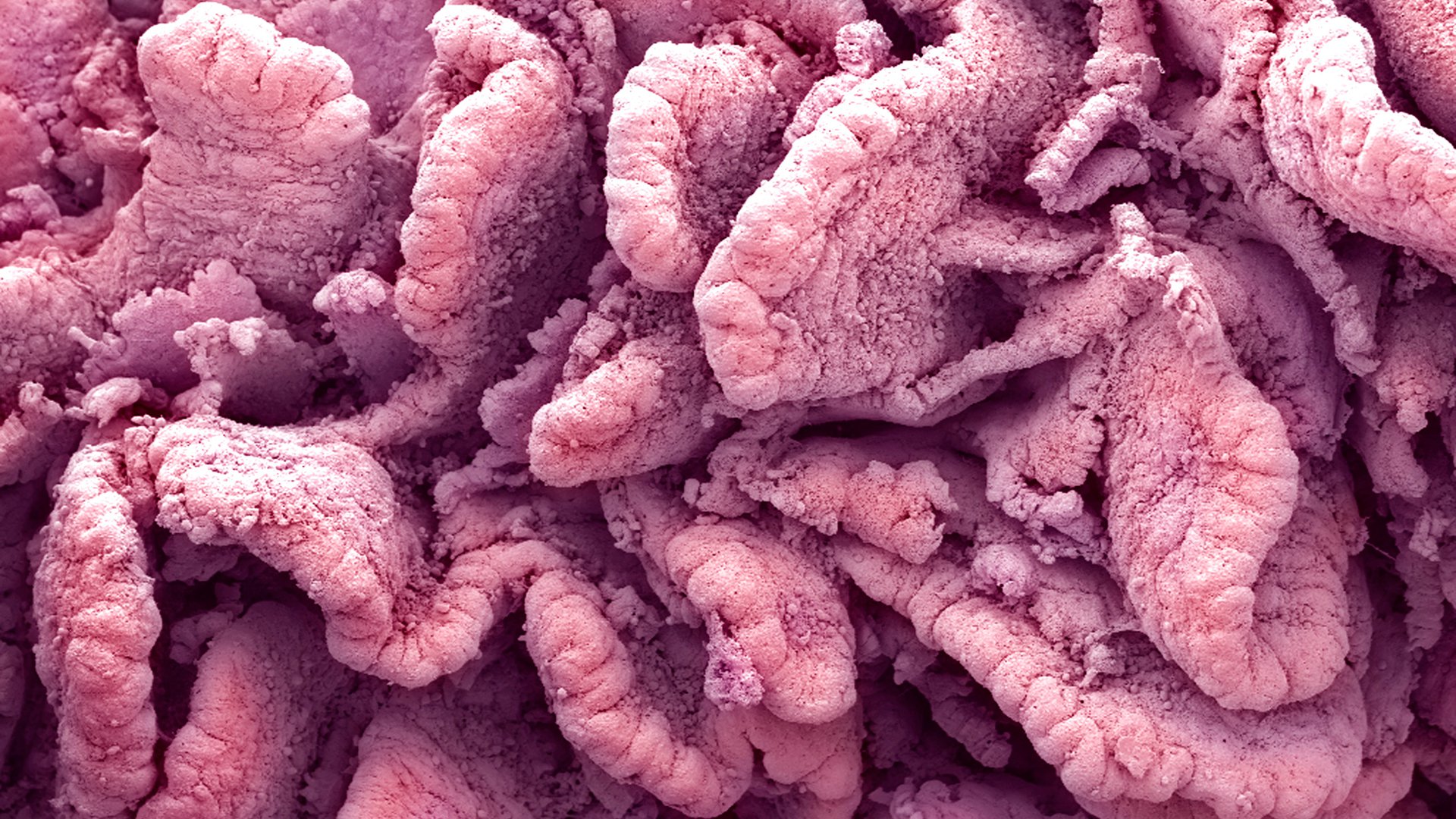Second brain
Gut bacteria may enhance happiness through their effects on the brain. That influence has even led scientists to begin calling the intestines 'the second brain'. In a study investigating the gut bacteria of individuals with depression, Belgian bioinformaticist Jeroen Raes found they had almost none of two specific strains, namely Faecalibacterium and Coprococcus. Though the link between the disorder and these bacteria is unclear, it's possible that a drop in the diversity of gut flora could increase the risk for depression. Conversely, their absence could also be an effect of depression.
Impact on well-being
Many gut bacteria produce substances that act on neurons in the brain. This includes dopamine, also known as the 'happy hormone'. Raes discovered that Coprococcus stimulates dopamine metabolism, and a higher dopamine metabolism increases happiness and reduces the risk of depression. Also, Coprococcus and Faecalibacterium both secrete butyric acid, a substance that fights intestinal inflammation. Scientists speculate that butyric acid may indirectly also reduce brain inflammation and thus prevent depression.
Healthy diet
The good news is you don't necessarily have to do a faecal transplant to boost the diversity of good bacteria in your gut. Neuroscientist and psychiatrist Timothy Dinan recommends individuals suffering from depression should eat a varied, high-fibre diet – fibre promotes the growth of Faecalibacterium and Coprococcus – with plenty of fish, and get enough exercise. However, he also cautions that diet should not be treated as a replacement, but as complimentary to medication and psychotherapy.
Source: NRC

